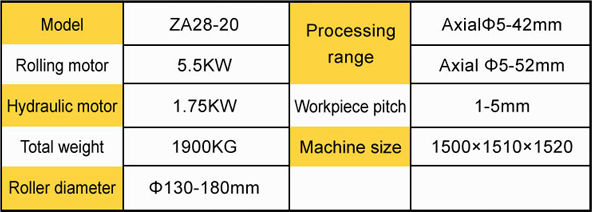
-
 Afrikaans
Afrikaans -
 Albanian
Albanian -
 Amharic
Amharic -
 Arabic
Arabic -
 Armenian
Armenian -
 Azerbaijani
Azerbaijani -
 Basque
Basque -
 Belarusian
Belarusian -
 Bengali
Bengali -
 Bosnian
Bosnian -
 Bulgarian
Bulgarian -
 Catalan
Catalan -
 Cebuano
Cebuano -
 Corsican
Corsican -
 Croatian
Croatian -
 Czech
Czech -
 Danish
Danish -
 Dutch
Dutch -
 English
English -
 Esperanto
Esperanto -
 Estonian
Estonian -
 Finnish
Finnish -
 French
French -
 Frisian
Frisian -
 Galician
Galician -
 Georgian
Georgian -
 German
German -
 Greek
Greek -
 Gujarati
Gujarati -
 Haitian Creole
Haitian Creole -
 hausa
hausa -
 hawaiian
hawaiian -
 Hebrew
Hebrew -
 Hindi
Hindi -
 Miao
Miao -
 Hungarian
Hungarian -
 Icelandic
Icelandic -
 igbo
igbo -
 Indonesian
Indonesian -
 irish
irish -
 Italian
Italian -
 Japanese
Japanese -
 Javanese
Javanese -
 Kannada
Kannada -
 kazakh
kazakh -
 Khmer
Khmer -
 Rwandese
Rwandese -
 Korean
Korean -
 Kurdish
Kurdish -
 Kyrgyz
Kyrgyz -
 Lao
Lao -
 Latin
Latin -
 Latvian
Latvian -
 Lithuanian
Lithuanian -
 Luxembourgish
Luxembourgish -
 Macedonian
Macedonian -
 Malgashi
Malgashi -
 Malay
Malay -
 Malayalam
Malayalam -
 Maltese
Maltese -
 Maori
Maori -
 Marathi
Marathi -
 Mongolian
Mongolian -
 Myanmar
Myanmar -
 Nepali
Nepali -
 Norwegian
Norwegian -
 Norwegian
Norwegian -
 Occitan
Occitan -
 Pashto
Pashto -
 Persian
Persian -
 Polish
Polish -
 Portuguese
Portuguese -
 Punjabi
Punjabi -
 Romanian
Romanian -
 Russian
Russian -
 Samoan
Samoan -
 Scottish Gaelic
Scottish Gaelic -
 Serbian
Serbian -
 Sesotho
Sesotho -
 Shona
Shona -
 Sindhi
Sindhi -
 Sinhala
Sinhala -
 Slovak
Slovak -
 Slovenian
Slovenian -
 Somali
Somali -
 Spanish
Spanish -
 Sundanese
Sundanese -
 Swahili
Swahili -
 Swedish
Swedish -
 Tagalog
Tagalog -
 Tajik
Tajik -
 Tamil
Tamil -
 Tatar
Tatar -
 Telugu
Telugu -
 Thai
Thai -
 Turkish
Turkish -
 Turkmen
Turkmen -
 Ukrainian
Ukrainian -
 Urdu
Urdu -
 Uighur
Uighur -
 Uzbek
Uzbek -
 Vietnamese
Vietnamese -
 Welsh
Welsh -
 Bantu
Bantu -
 Yiddish
Yiddish -
 Yoruba
Yoruba -
 Zulu
Zulu
CE Certified Small Thread Rolling Machine | Precision and Efficiency
CE Certification for Small Thread Rolling Machines
In the manufacturing industry, the importance of certification cannot be overstated, especially when it comes to machinery such as small thread rolling machines. CE certification is a crucial mark that indicates a product's compliance with European health, safety, and environmental protection standards. This certification not only enhances the credibility of the machine but also assures buyers of its quality and safety for operational use.
Small thread rolling machines are typically utilized in various industries to produce high-precision threaded components. These components are essential in engineering applications, including automotive, aerospace, and electronics. The demand for such machinery has surged due to the growing requirement for reliable and durable threaded parts, which makes CE certification essential for manufacturers aiming to enter or expand in the European market.
Obtaining CE certification involves several steps. First, manufacturers must ensure their machines meet the relevant European directives and regulations. These can include the Machinery Directive, which focuses on the essential health and safety requirements of various types of machines. Additionally, other directives like the Low Voltage Directive or the Electromagnetic Compatibility Directive may also apply, depending on the machine's features and applications.
Once compliance is confirmed, a thorough risk assessment of the machine must be conducted. This assessment identifies any potential hazards associated with the machine's operation and usage. Manufacturers typically need to document hazards related to electrical, mechanical, or operational aspects. After identifying these risks, they must implement necessary measures to mitigate them—this may involve modifications to the machine design or the addition of safety features.
ce certification small thread rolling machine

Manufacturers are also required to prepare a technical file that contains detailed information about the machine's design, manufacturing process, and performance testing results. This file must demonstrate that the machine complies with all relevant directives, and it is a crucial part of the CE marking process.
Once the technical documentation is finalized, manufacturers may choose to involve a notified body—a third-party organization recognized by EU authorities—to carry out further assessments and audits. Although not always mandatory for small machines, third-party assessments provide an additional layer of assurance regarding compliance, which can be a selling point when marketing the machinery.
Upon successful completion of all necessary procedures, the manufacturer can affix the CE marking to the machine
. This marking signifies that the small thread rolling machine meets all safety and performance standards set forth by European legislation, thereby allowing it to be sold and operated throughout the European Economic Area (EEA).The advantages of CE certification extend beyond regulatory compliance. It facilitates access to the European market, enhances customer trust, and often leads to increased sales. Furthermore, a machine that adheres to CE standards is frequently associated with higher quality and reliability, which can improve a manufacturer's reputation in a competitive marketplace.
In conclusion, CE certification for small thread rolling machines is not merely a regulatory requirement; it is a vital aspect of product development and market strategy. Manufacturers pursuing this certification not only comply with essential safety standards but also position themselves favorably within the industry, ultimately contributing to their growth and success in global markets.
